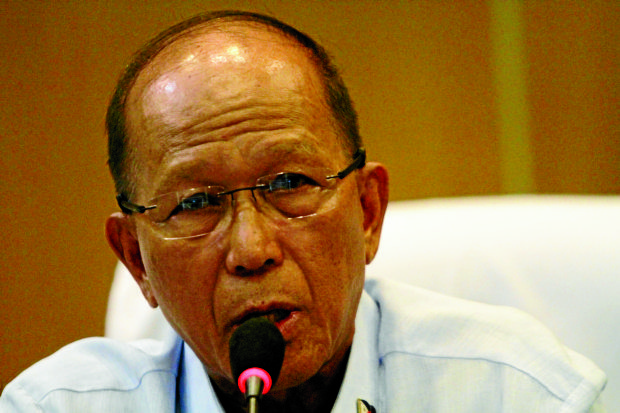Ransom paid for Indonesian hostages, says Lorenzana
SINGAPORE—Defense Secretary Delfin Lorenzana admitted on Monday that the companies which employed two recently freed Indonesians had paid a ransom of P20 million to their captors in southern Philippines.
Lorenzana did not identify the captives but the military said two Indonesian hostages were freed last month by the Abu Sayyaf, which has pledged allegiance to the Islamic State group.
The two were among seven crew seized from a tugboat off southern Philippines in June.
Lorenzana told a security forum in Singapore that President Duterte was under pressure to declare martial law in at least three southern islands where jihadists operate, but he did not think there was a need.
Security analysts had said ransom was paid for the release by the Abu Sayyaf last year of a Norwegian hostage, although the Philippine and Norwegian governments denied it.
Article continues after this advertisementLorenzana told the Fullerton Forum organized by the International Institute for Strategic Studies that 25 kidnap victims were still being kept in the southern island of Jolo but urged that no ransom be paid for their release.
Article continues after this advertisementJolo is a stronghold of the Abu Sayyaf, which is known to behead its victims if ransoms are not paid. The group decapitated a Malaysian in 2015 and two Canadians last year.
Lorenzana said the Army’s chief difficulty in hunting militants was the presence of civilians in communities where they operate, who also benefit from the ransom money.
“It seems that the whole of the community are into it, not everybody but a major part of the community are benefiting from the ransom,” he said.
The government is trying to “convince the companies and the families not to pay ransom because every time they pay ransom they make the kidnappers stronger,” he said.
“They have more money to distribute to the communities and they have more money to procure all the gadgets that they need—cell phones, firearms and even materials to manufacture improvised explosive devices.”
Lorenzana said the government’s strategy against militants was a “holistic approach”—introducing development projects and providing “incentives for the people to go fishing rather than go kidnapping.” —AFP
